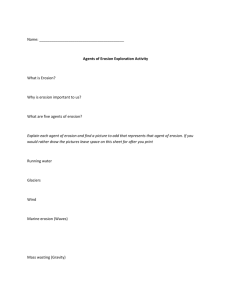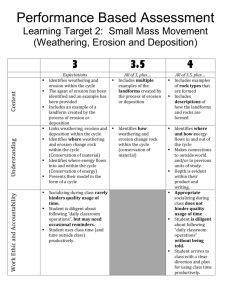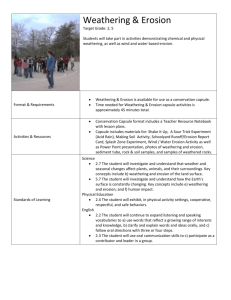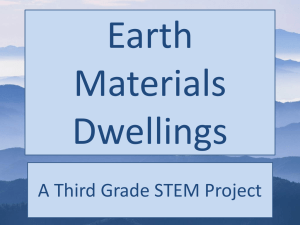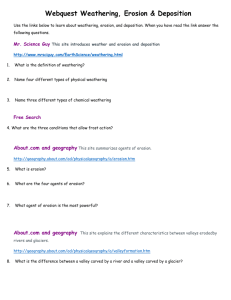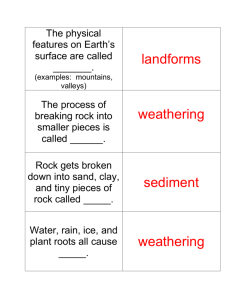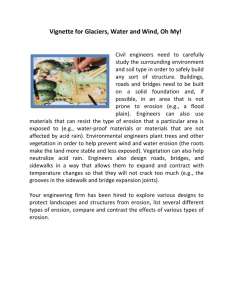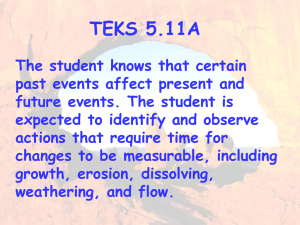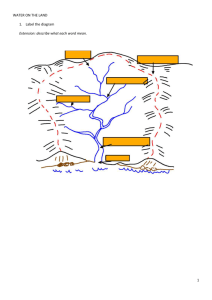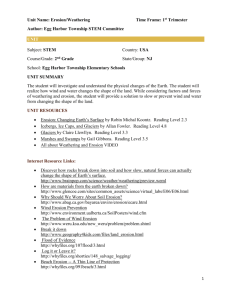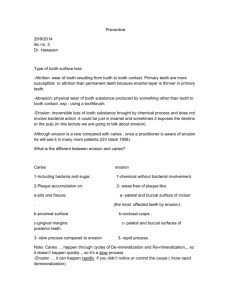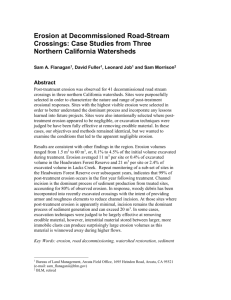How do temperature and precipitation affect weathering? Increased
advertisement
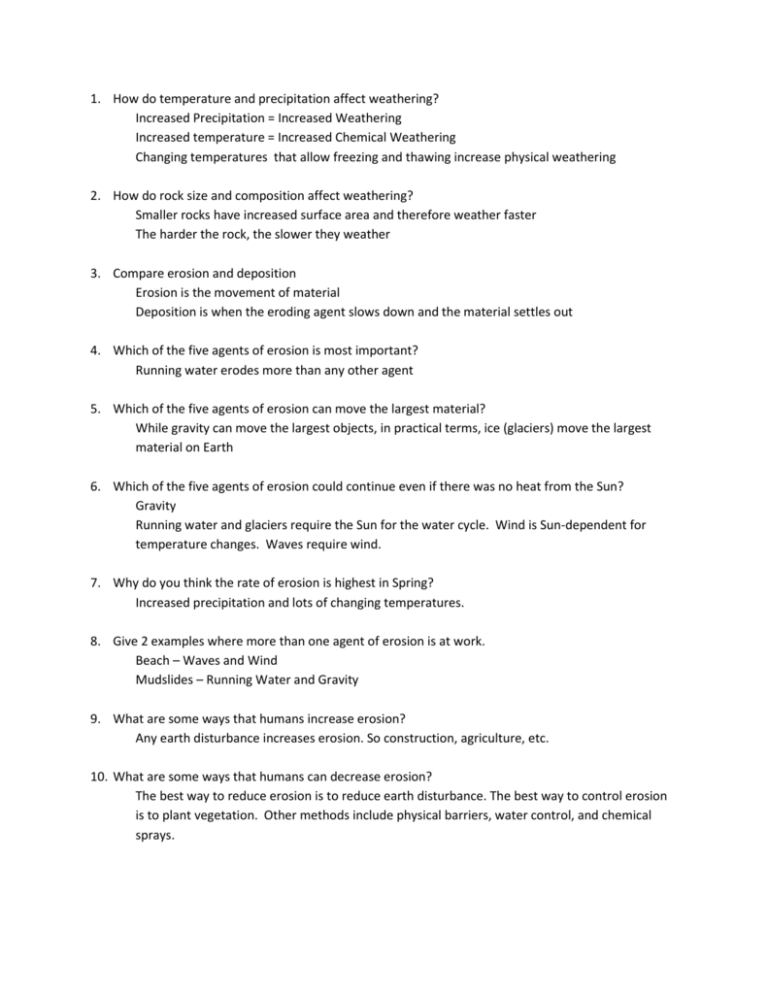
1. How do temperature and precipitation affect weathering? Increased Precipitation = Increased Weathering Increased temperature = Increased Chemical Weathering Changing temperatures that allow freezing and thawing increase physical weathering 2. How do rock size and composition affect weathering? Smaller rocks have increased surface area and therefore weather faster The harder the rock, the slower they weather 3. Compare erosion and deposition Erosion is the movement of material Deposition is when the eroding agent slows down and the material settles out 4. Which of the five agents of erosion is most important? Running water erodes more than any other agent 5. Which of the five agents of erosion can move the largest material? While gravity can move the largest objects, in practical terms, ice (glaciers) move the largest material on Earth 6. Which of the five agents of erosion could continue even if there was no heat from the Sun? Gravity Running water and glaciers require the Sun for the water cycle. Wind is Sun-dependent for temperature changes. Waves require wind. 7. Why do you think the rate of erosion is highest in Spring? Increased precipitation and lots of changing temperatures. 8. Give 2 examples where more than one agent of erosion is at work. Beach – Waves and Wind Mudslides – Running Water and Gravity 9. What are some ways that humans increase erosion? Any earth disturbance increases erosion. So construction, agriculture, etc. 10. What are some ways that humans can decrease erosion? The best way to reduce erosion is to reduce earth disturbance. The best way to control erosion is to plant vegetation. Other methods include physical barriers, water control, and chemical sprays.

